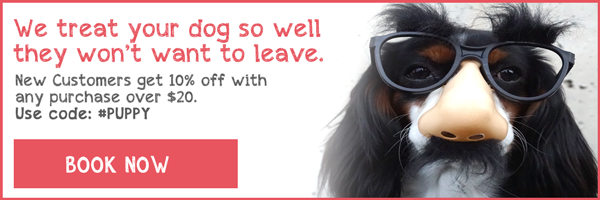Every experienced dog owner has been a novice at some point in their lives, with a dog they don’t quite understand, and a set of rules they shakily stick to without a real understanding of why.
In reality, dog ownership can be easy, so long as we don’t make a classic mistake: assigning human characteristics to the new animal in our lives.
Why? Well, a dog responds to a very different set of tools.
Here are the things you’ll want to know if you’re taking on the responsibility of dog ownership for the first time. With luck, it’ll save you a few headaches down the line.
Consistency is key
Dogs crave routine, and so being able to give your animal stability in the day-to-day will help tremendously. Everything from mealtimes to when you go for a walk should be kept as stable as possible.
Don’t talk to your dog like a human
As much as we like to think our dog is an extension of us, it’s simply not the case, and relying on the verbal toolset will only complicate matters. If we are going to speak to our dog, we should be concentrating on how we say something rather than what we say. Raising our voice, for instance, is a suitable form of discipline for a child, but something that simply excites a dog.
Don’t reinforce bad behaviors
This one sounds simple, right? No one wants to reward a dog for behaving badly, and so we should all look to stamp out unruly behavior as quickly as possible, right.
In reality, we often reinforce bad behavior without realizing it.
Shouting at our animal, as we’ve pointed, causes yet more excitement. The same goes for gently hitting or wagging our finger in our animal’s face.
In short, all the behaviors we use to scold a human are exactly the sort of behaviors we want to avoid with a dog.
Instead, rely on your energy to get your way – everything from your posture to the speed at which you communicate matters.
Always be the leader
As pack animals, dog wants to follow a leader – and that leader is you.
Strong leaders are calm, assertive and consistent. They reward reliably and withhold affection when appropriate.
They set a steady schedule and ensure the dog becomes accustomed to it.
They don’t lose their cool, raise their voice, or resort to intimidation.
Socialize your animal
Socialization is hugely important. The faster your dog is comfortable around strangers – including strange dogs – the better.
Socialization needs to happen fast, as well. You a have window of 16 weeks to form positive associations in your dog’s mind.
Once this window closes, it becomes more difficult to train your dog to deal with foreign surroundings.
The upshot? Surround him with people – and dogs – early on.
Take him out on the street and have him experience new sights, sounds and smells. Have him interact with toddlers, seniors, boys, girls – people of all walks of life. This will stand you in good stead as habits are formed and personality traits begin to crystalize.



